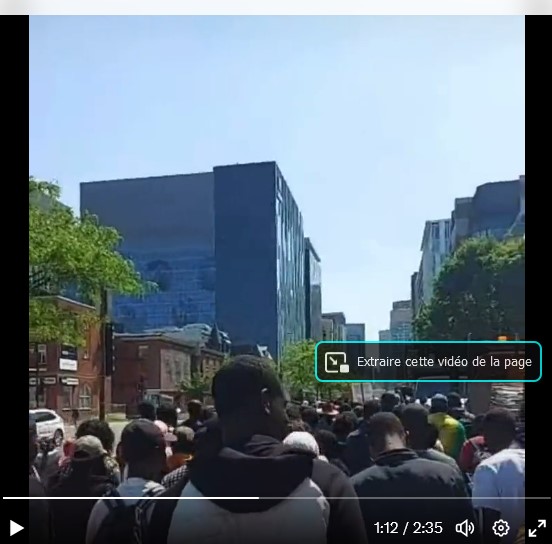Fast backlinks and Guest-post hosting
Monday, October 14, 2013The president of the Republic of The Gambia, His Excellency Sheikh Professor Alhaji Dr. Yahya Jammeh, has proposed the setting up of a Truth and Reconciliation Commission to permanently solve the case of the indicted Kenyan president Uhuru Kenyatta and his deputy William Ruto.
Professor Jammeh, who was speaking to journalists at the Banjul International Airport on Sunday after his return from the African Union (AU) extra-ordinary summit in Addis Abba, Ethiopia, said it is important for the International Criminal Court (ICC) to refer the case of the duo to Kenya.
“They should stop the case and hand over the matter to the Kenyan authorities and let them set up a Truth and Reconciliation Commission,” the Gambian leader told journalists upon his return from the summit where he joined his counterparts to discuss Africa’s relationship with the ICC and other pertinent issues affecting the continent.
During the session, the continent’s leaders underscored that the indictment of Kenyatta and Ruto is the first time a sitting head of state and his deputy are being tried in an international court, and stressed the “gravity of such a situation, which could undermine the country’s sovereignty, stability, and peace.
The Gambian leader further suggested that the ICC and the AU should have encouraged reconciliation by handing over the case either to Kenya or stop it, noting that the current leaders of Kenya are young and the West are not very comfortable with young African heads of state, and knowing also the history of Jomo Kenyatta, how he stood for the independence of Kenya, they (the West) would not be comfortable if Jomo’s son wants to follow the footsteps of his father.
The Gambian leader said though the summit was not as successful as he would have expected, it was a great step forward. “However, it is good that we sat down to discuss pertinent issues because I don’t think that we should be reacting, we should be proactive,” he said. President Jammeh also recalled that in Tripoli, Libya, African leaders almost endorse the arrest warrant of Omar Al-Bashir of Sudan during which he has rejected that proposal.
The Gambian leader blamed some of his colleagues for some of the problems in the continent. He said the issue of arrest warrants started with Al-Bashir and has now come to Kenya and the question for that is why now? According to him, Al-Bashir was never referred to the ICC by any African government as far as they are concerned. He said it was the Security Council that referred the Sudanese president and then the ICC issued an arrest warrant for him. He said since the onset, they are not going to accept a sitting African president being indicted without even going through the African Union but nobody said anything because most of them are working for them [the West].
“This is unacceptable; why, because, it is not about Kenya, is about some people among us, if they are arrested and prosecuted because they have committed horrendous war crimes some heads of states will be indicted, so it is a question of trying to save ourselves. But where it started is a matter of principle, if you are opposed to something you have to oppose it from the beginning.
It has to be based on a principle, but you don’t have to wait until when you smell a rat and you say no, the ICC is targeting Africans and most of the cases before the ICC except that of Omar Al-Bashir were referred to the ICC by the African governments, and for the case of Kenya, the ICC should have been more flexible because the two gentlemen were referred to the ICC by a government they opposed and it was a political move to make sure that they will not win election.
Imagine if you are indicted you stand and campaign as a candidate and that was what the other side was saying, ‘if you vote for these people you don’t have a president because they are indicted by the ICC’. So their indictment was before they became heads of state and now they are the ones elected by the Kenyan people and knowing that they have been indicted by [the] ICC, the Kenyan people are showing us that they care for them and they want them to lead them no matter what they are accused of,” President Jammeh said.
African migrants
Aside from the issue of ICC, the Gambian leader also spoke on the current treatment meted out to African migrants that travel to Europe in search of greener pastures. He said thousands of them are dying every day on European coasts and nothing is being said about it. Professor Jammeh used the opportunity at the summit to reiterate his call for fair treatment of those African migrants that travel to Europe by any means for greener pastures.
At the summit
At their meeting in the Ethiopian capital over the weekend, the Heads of States and Governments reiterated their unflinching commitment to fight impunity, promote human rights and democracy, and the rule of law and good governance on the continent. They also agreed that Kenya should send a letter to the United Nations Security Council (UNSC) requesting the deferral, in conformity with Article 16 of the Rome statute, of the proceedings against the president and his deputy and this letter would be endorsed by all African State parties.
After reaffirming the principles deriving from national law and international customary law by which sitting heads of state or government and other senior state officials are granted immunities during their tenure of office, the Assembly decided that, “no charges shall be commenced or continued before any international court or tribunal against any serving head of state or Government or anybody acting in such capacity during his/her term of office. To safeguard the constitutional order, stability and integrity of member states, no serving AU Head of State or Government or anybody acting or entitled to act in such a capacity, shall be required to appear before any international court or tribunal during their term of office”.
They made these decisions in Addis Ababa, within the framework of the theme, “Africa’s relationship with the International Criminal Court”.
During that extraordinary session, the Assembly underscored that the indictment of the Kenyan president and vice president is the first time a sitting head of state and his deputy is being tried in an international court, and stressed the “gravity of such a situation, which could undermine the country’s sovereignty, stability, and peace”.
While recognizing the critical role Kenya is playing in the fight against terrorism, the Assembly noted that the proceedings against the president and his deputy will distract and prevent them from fulfilling their constitutional responsibilities, including national and regional security affairs, before finally adopting a declaration on Africa’s solidarity with and support to Libya; a declaration of solidarity with the Republic of Kenya following the terrorist Al Shabaab attack on the Westgate Mall in Nairobi, Kenya and a declaration on the Lampedusa tragic boat incident.
Author: Musa Ndowhttp://observer.gm/africa/gambia/article/president-jammeh-proposes-truth-reconciliation-commission
President Jammeh proposes Truth & Reconciliation Commission
Outils
Vos reglages
- Plus petit Petit Moyen Grand Plus grand
- Default Helvetica Segoe Georgia Times
- Mode de lecture








